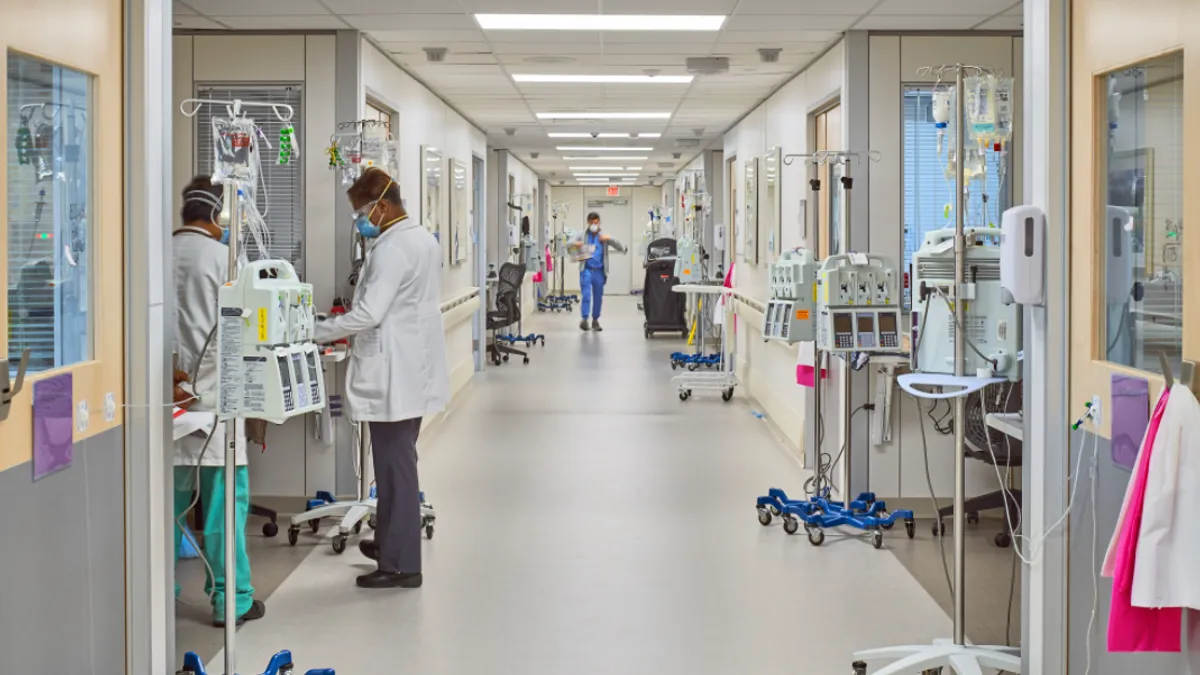Dive Brief:
- Hospital administrators expect the surging omicron wave to affect elective surgeries for up to four weeks, potentially resulting in a 7% revenue hit for exposed medtech companies.
- Analysts at BTIG generated the forecast by running a flash survey of 51 hospital administrators late last week. The poll found a mix of healthcare staff shortages and rising COVID-19 admissions is forcing hospitals to cancel elective surgeries and postpone diagnostic and imaging procedures.
- The findings jibe with a William Blair poll of 142 physicians conducted over the holidays, with doctors indicating they have delayed their expectations for a return to normal patient volumes until mid-2022.
Dive Insight:
Both surveys took place late last year, when it was clear omicron was driving a rapid rise in COVID-19 cases but the seven-day rolling average was just passing the peak of 250,000 from early last year. By Jan. 4, the rolling average was above 500,000, more than double the highest-ever level and more than three times the height of the delta-fueled peak that hit medtech sales in the fall.
With omicron encountering much more immune populations than earlier variants, and potentially being intrinsically less likely to hospitalize patients, a smaller proportion of those infected should need medical care, experts say. However, with cases doubling in a week to hit an unprecedented high, the variant is still causing big problems for healthcare providers.
"With hospitals short-staffed and COVID hospitalizations increasing, there just isn't enough availability of beds or providers to handle all surgical patients. In short, the areas that are being hardest hit are the usual suspects, orthopedics and elective general surgery, while cardiac surgery and non-elective general surgery appear to be least impacted," the BTIG analysts wrote.
That forecast is already playing out in the real world. With COVID-19 hospitalizations in Illinois at record levels, Chicago-area hospitals are delaying elective procedures. Hospitals in the U.K. are taking similar actions, as widespread staff absences mean care is disrupted despite COVID-19 admission levels that are yet to reach prior highs.
Half of the hospital administrators polled by BTIG identified orthopaedics as the most-impacted area, as it was in earlier waves of the pandemic, while cardiac surgery is the least affected. The finding suggests companies such as Smith & Nephew, Stryker and Zimmer Biomet face a strong headwind on top of the range of problems that stopped them from bouncing back quickly from the fall delta wave.
Based on administrators' expectation that elective surgery will be impacted for three to four weeks, the BTIG analysts estimate that, in the worst-case scenario, medtech could suffer around a 7% top-line impact.
Even as the omicron wave breaks, the analysts expect staffing challenges to persist and constrain procedure volumes. Seventy percent of physicians polled by William Blair said hiring staff has become more difficult, mainly because of a "lack of qualified applicants" and "elevated compensation."










